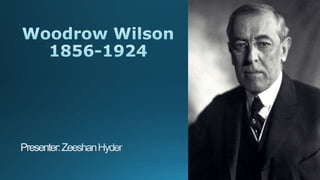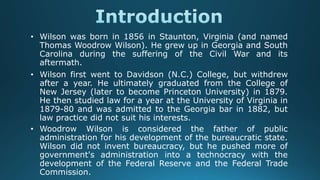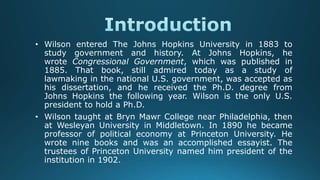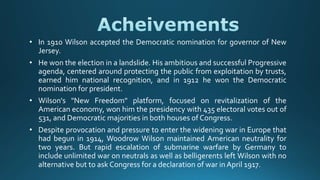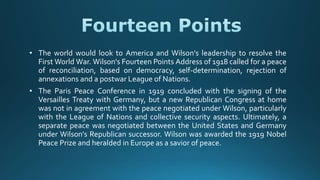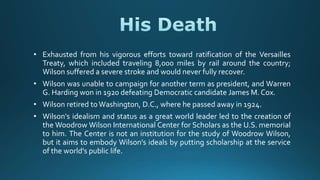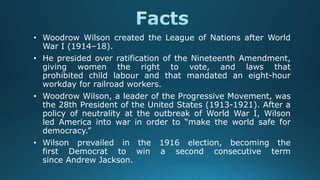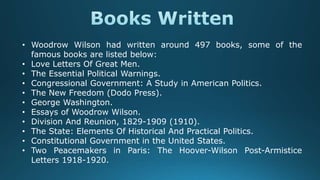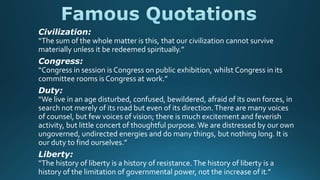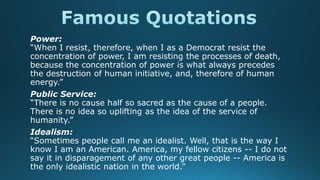Woodrow Wilson was the 28th president of the United States from 1913 to 1921. He created the League of Nations after World War 1 to promote collective security. Wilson also presided over the ratification of the 19th Amendment giving women the right to vote. He was a leader of the Progressive Movement and advocated for policies like prohibiting child labor and establishing an 8-hour workday.
